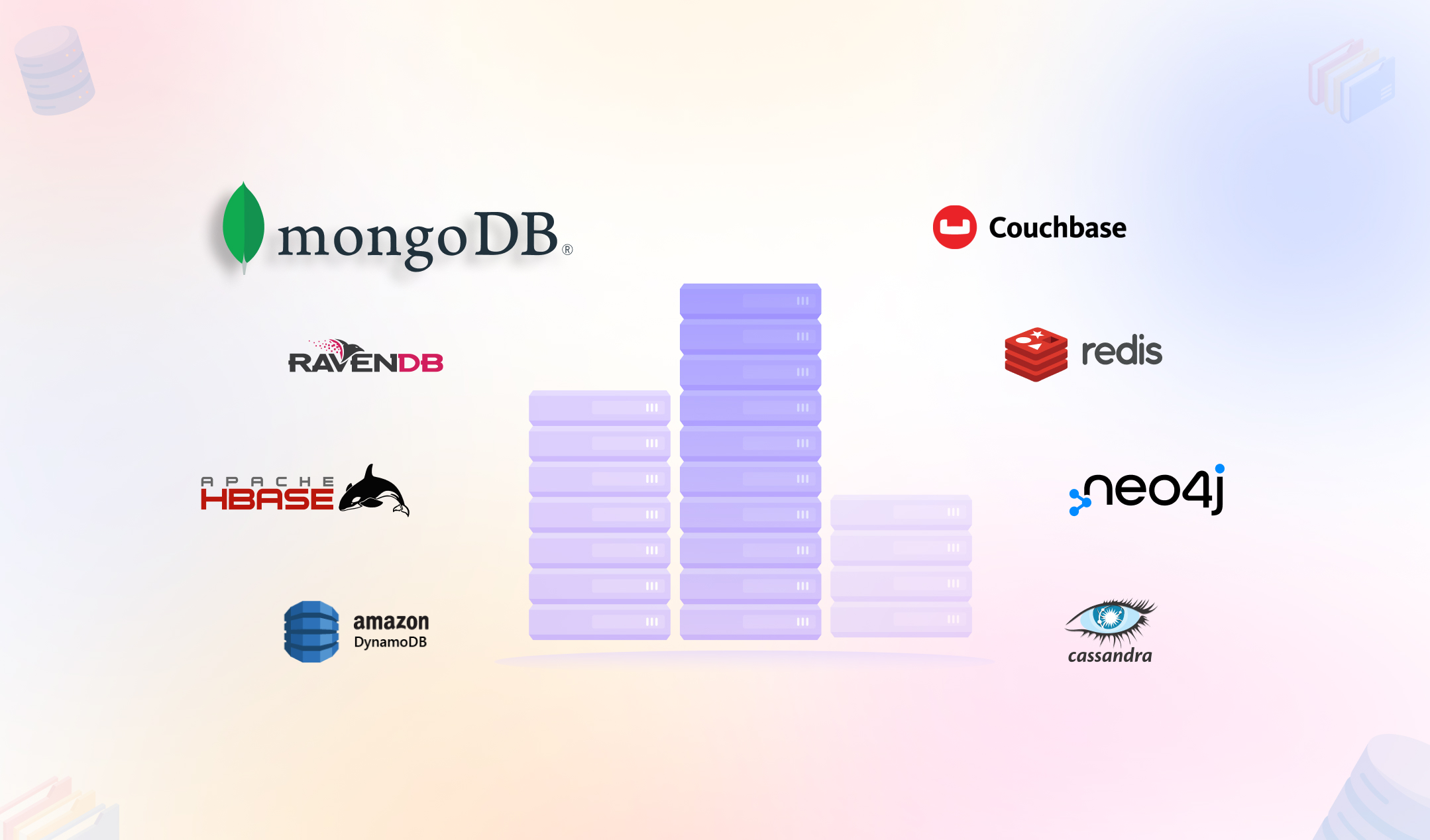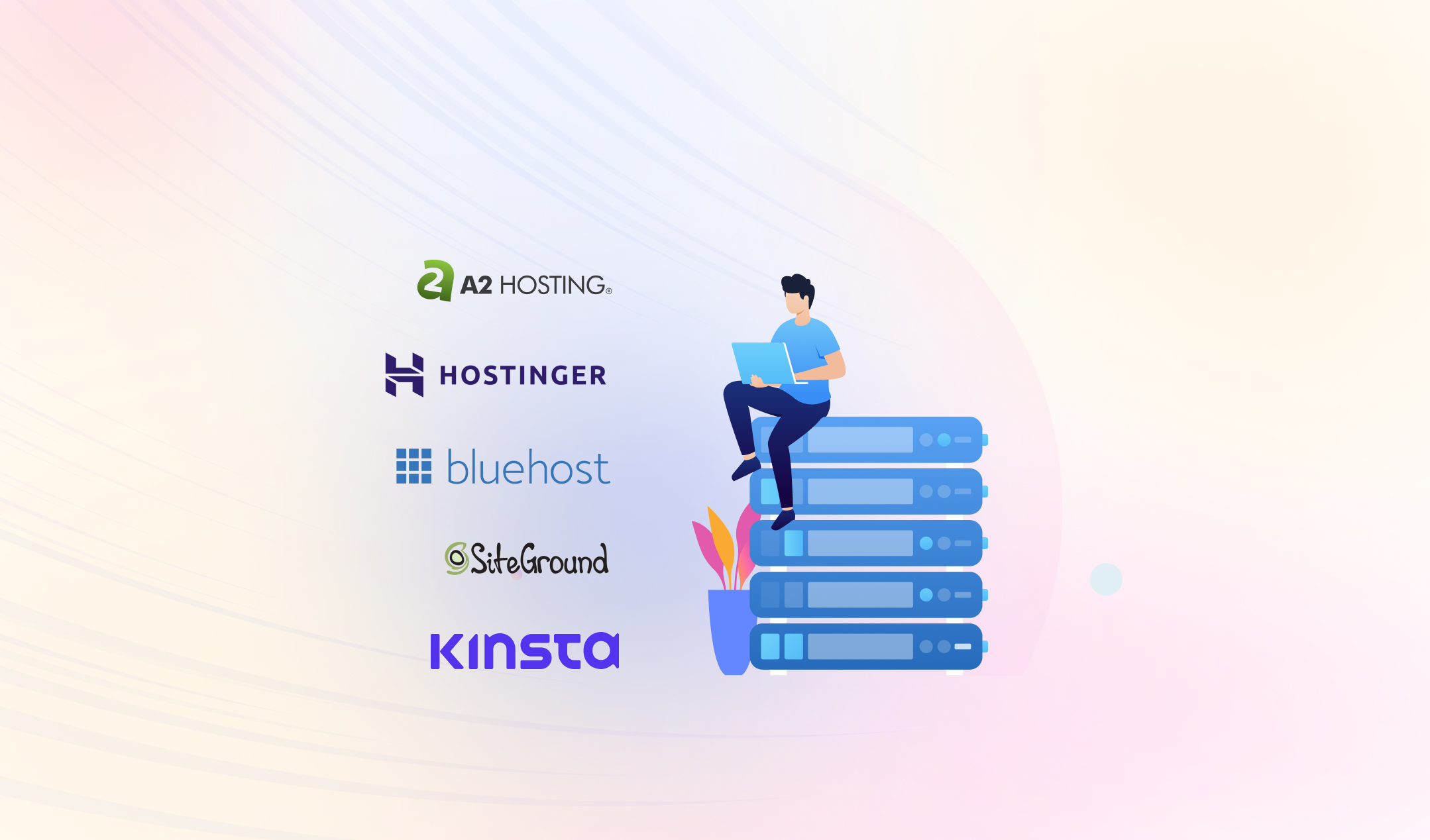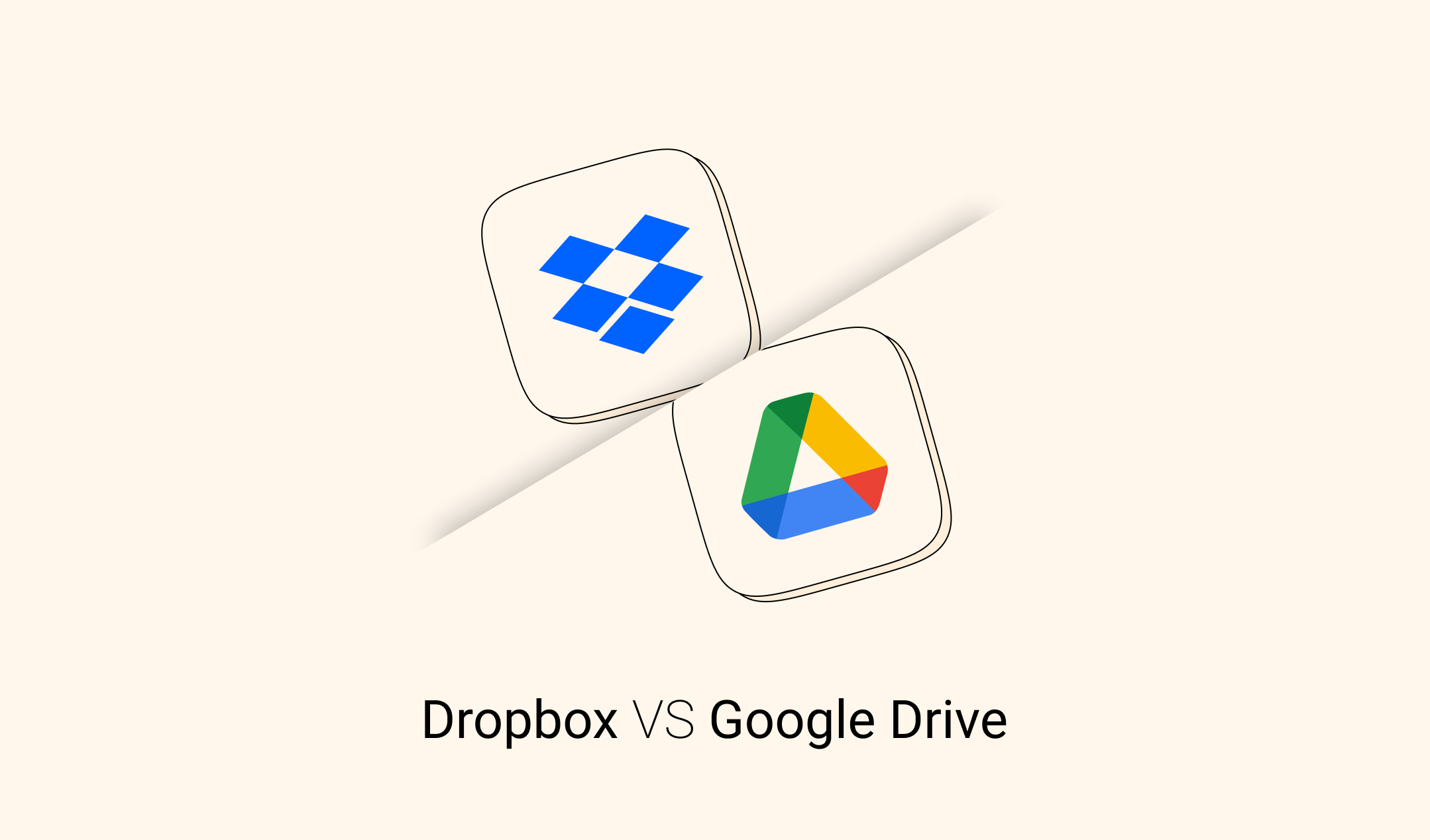Are you searching for the fastest database for large data? Try one of the best & fastest NoSQL databases because they can efficiently deal with significant amounts of data. There are several of these databases that stands out from the rest. Here, we will look at the Top 8 Fastest NoSQL databases for high performance in 2023. Let’s start with the basics.
What is NoSQL Database?
NoSQL databases are non-tabular warehouses that store and manage differently than a relational table. They are available in multiple categories, which vary as per their data model. However, the widely used versions are graph, wide-column, key-value, and document. NoSQL databases come with flexible schema, which makes them scalable.
You can try the fastest database for large data if you wish to store and process a significant amount of data. They are also a perfect option if you want to distribute flexible data models across different servers. Let’s talk about the best available options.
Top 8 Fastest NoSQL Database for High Performance in 2023
MongoDB
MongoDB is the fastest non relational database, which could be a perfect choice if you are looking for a fast and powerful NoSQL database. It has a document-oriented database. So, your data is kept in JSON-like documents.
MongoDB is a schema-less database, which means it offers more flexibility in terms of data models. You can easily learn MongoDB because it is similar to a traditional relational database. But, you should have prior database experience to understand this storage solution.
Try MongoDB if you want to get started without spending a lot. This database is cloud-based, which means it’s flexible to use. Moreover, this DB has all the articles, reference manuals, and code samples you need to deploy and configure it.
Key features
- MongoDB Atlas, which allows you to choose your instance size and pay accordingly
- MongoDB Compass is an incredible GUI that’s perfect if you want to explore your data
- AI-powered and event-driven apps
Advantages
- Easy to scale
- Schema-less
- Powerful query language
- Document-oriented design
- Optimized for performance
- Easy to distribute across multiple servers or data centers
- Supports a wide range of data types
- Trusted by a lot of big brands like Tech Mahindra, MS Azure, TCS, Accenture, Apollo, AWS, etc
Disadvantages
- High memory consumption for data storage
Pricing
MongoDB has two different premium packs:
- MongoDB Atlas: Has three versions: Shared (Free), Serverless (from $0.10/million reads), and Dedicated (from $57 per month)
- MongoDB Enterprise Advanced: You have to contact the MongoDB sales team to know the pricing.
Apache Cassandra
Are you looking for a free open-source high performance NoSQL database? Try Apache Cassandra as it can handle huge amounts of data and offers high availability without any point of failure. It’s also a perfect choice if you need scalability without any compromises on performance. This database is a perfect platform if you have mission-critical data because of its proven fault tolerance on cloud infrastructure and hardware.
Apache Cassandra gives you some learning materials. Plus, its courses are available on Udemy YouTube, Coursera, and several other places. Once you learn its configuration and usage, you can manage massive amounts of data without losing your cool.
Key features
- Masterless architecture and low latency
- Replacement of failed nodes within a few seconds
- Tested on clusters as large as 1,000 nodes
Advantages
- Choice of synchronous or asynchronous replication for each update
- Audit logging feature for operators
- No downtime or interruption to applications
- Up to 5X faster
Disadvantages
- Complex to set up and maintain, not recommended for beginners
- Difficult for developers who are used to SQL
- Does not support joins
Pricing: Free to use
Redis
Redis is another top-notch NoSQL database, popular for its flexible data model and high performance. You can use it for all the applications that seek quick data retrieval, including real-time messaging, caching, etc. Do you know why? Because this database stores data in key-value pairs to facilitate fast and easy data access.
Redis supports a lot of data types including lists, hashes, strings, and sets. It is used in mobile applications, web applications, and other data-intensive systems. Furthermore, you can try this high performance NoSQL database for applications that needs flexible data modeling and fast data retrieval. But, it’s not recommended for applications that need data durability or consistency.
Key features
- Open-source database
- In-memory data structures
- High availability
- Programmability and Extensibility
Advantages
- High performance
- Supports a wide range of data types
- Comes with multiple advanced features like Lua scripting
- Has support for clustering, so scaling is easy
- Quick data retrieval, perfect for applications that need real-time access to data
Disadvantages
- Limited support for data durability
- Complex to manage, especially if you do not have experience
Pricing: Free to use
Couchbase
Couchbase is another high performance NoSQL database, which is perfect if you need a scalable data warehouse. It’s document-oriented and uses JSON documents to save your data. Moreover, this database has indexing abilities and it’s a key-value storage solution.
With the help of Couchbase, you can update documents and query data without rewriting the entire dataset. Apart from that, its multi-model lets you consolidate several data technologies into one database. What’s more? This data waregouse has a built-in managed cache, which offers lightning-fast performance with a latency of microseconds.
Key features
- Couchbase Mobile and App Services to sync data across all the devices
- Automatic sharding, automatic failover, and automatic replication
- SDK available in more than 11 languages
Advantages
- Easy to scale
- Cloud managed for high-performance
- Document-oriented
- Allows storage, query, and search regardless of your internet connectivity
- Flexible JSON data modeling
Disadvantages
- Steep learning curve
Pricing: Couchbase has three different versions: Capella, Server, and Mobile.
- Couchbase Capella has three different plans
- Basic – Starts from $0.28/hr per node
- Developer Pro- Starts from $0.35/hr per node
- Enterprise – starts from $0.56/hr per node
- The price for Couchbase Server and Couchbase Mobile can be requested from the Couchbase website.
Apache HBase
Apache HBase is the best NoSQL database for Big Data if you need an open-source data warehouse. This non-relational database is written in Java and runs on HDFS (Hadoop Distributed File System).
Try Apache Hbase if you wish random and real-time write/read access to your Big Data. It can host large tables without any compromises on performance. If you like Apache HBase and you want to try it, then we suggest you attend some learning courses. Apache HBase courses are available on YouTube, Udemy, Cloudera, or Coursera.
Key features
- Manual and automatic sharding of tables
- Extensible JRuby-based (JIRB) shell
- Block cache and Bloom Filters
Advantages
- User-friendly Java API for client access
- Support for exporting metrics
- Automatic failover support
- Provides strong data durability and consistency
- Handles both structured and structured data
Disadvantages
- Complex to manage
- Requires significant hardware
Pricing: Free to use
Amazon DynamoDB
Amazon DynamoDB is a high performance NoSQL database that provides quick and flexible data storage for mobiles, gaming, and web applications. It is a highly scalable data warehouse, which provides uncompromised performance even if your data grows in the future. Moreover, this database uses key-value and document data models. So, it stores all the items as a set of attribute-value pairs.
You will be happy to know that Amazon DynamoDB handles both structured and unstructured data, including JSON. Moreover, it supports a wide range of data types including binary, number, string, and sets. What’s more? This database provides a guaranteed SLA of up to 99.999% availability and can handle over 10 trillion requests each day.
Key features
- Automatic backup and restore
- Single-digit millisecond latency
- Getting started is free
Advantages
- Low latency
- Fully managed service to free your time
- Encryption at rest
- Automatic partitioning for maximum performance as your data grows
- Integrates with other AWS services
- Flexible pay-as-you-go plans
Disadvantages
- Querying abilities are limited
- Not suitable if you need data consistency
Pricing: Pay as you go, configure the options as per you need to check the price. It also has AWS free tier.
Neo4J
Neo4J is a graph database that offers a flexible data model, which you might never find in any relational SQL databases. This data warehouse contains nodes and relationships, which means it can easily represent complex data structures.
Neo4J scales your analytical and transactional workloads with its native graph storage, machine learning, data science & analytics. Moreover, it has enterprise-grade security controls. Created by data scientists, this high performance NoSQL database makes queries simple by taking out tables and joins.
Here, you have Cypher, which simplifies data analysis with 10 times fewer codes than SQL. These are some of the reasons why big brands like Adobe, NASA, Vanguard, Intel, Comcast, and Volkswagen uses Neo4J.
Key features
- Autonomous Clustering
- Whiteboard-friendly schema
- High availability
Advantages
- Supports real-time updates
- Querying is simple
- Scalable
- Provides best performance
- Easy to deploy
Disadvantages
- Does not support sharding
Pricing: Neo4J is available in two versions: Cloud and Self-Managed
- Cloud has three different plans, including AuraDB – Free, AuraDB Professional – Starts from $65 per month, and AuraDB Enterprise – Price available with the Neo4J sales team.
- Self-Managed Neo4J has two editions, Community and Enterprise. The community is free to download. You have to contact the Neo4J sales team to get the price of Enterprise Edition.
RavenDB
RavenDB is one of the fastest non relational databases that facilitate multi-document ACID transactions. This data storage solution offers all the benefits of NoSQL and it also has all the essential parts of a relational database. So, RavenDB is a suitable choice for OLTP tasks like processing sales, purchases, and more.
RavenDB is a document database that stores all your data using JSON documents. Moreover, it comes with an Advanced NoSQL query engine, which helps you to find the data you want. Furthermore, you can use RavenDB in combination with your existing SQL databases. So, it could be a perfect choice if you are already using SQL databases.
Key features
- Fully transactional
- Multi-model architecture
- Data visualization available
Advantages
- Easy to use
- Allows fast scaling
- Uncompromised performance
- High availability because of the real-time replication between nodes
- Fast, facilitates more than 1 million reads every second
- Trusted by brands like Toyota, Verizon, Capgemini, and Starnet.
Disadvantages
- The community of developers using RavenDB is small as compared to other options.
Pricing
RavenDB is available in two different editions: On-Premise and Cloud
RavenDB On-Premise has three versions.
- Community – free
- Professional – $828 per year per core
- Enterprise: $1458 per year per code
RavenDB has three versions, and the price varies according to your instance size, storage, capacity, and other selections.
- Free – Only available with AWS
- Development – Available with AWS, MS Azure, and Google Cloud Platform.
- Production – Available with AWS, MS Azure, and Google Cloud Platform.
Considerations While Picking the Fastest NoSQL Database in 2023
- Data model: NoSQL comes with different data models like graph, column-family, key-value, and documents. Try the fastest non relational database that suits the data structure of your application.
- Consistency: Make sure you try a NoSQL database with data consistency matching your application. Some of these data warehouses come with strong consistency, but the other has eventual data durability. So, check these factors before you make your choice.
- Scalability: Make sure you pick a top-notch NoSQL database with optimum flexibility, especially if you are into a growing business. Or if the storage requirements can grow in the future.
- Security: Your storage solution should comprise high-grade security features to keep your data safe from unauthorized access. So, try a NoSQL database with multiple security features like encryption, authentication, and authorization.
- Budget: After checking the reviews of high performance NoSQL databases, you can understand that these storage solutions are available in different price ranges. So, try something that suits the financial conditions of your business.
FAQs
What are the 4 types of NoSQL databases?
- Document databases.
- Key-value stores.
- Column-oriented databases.
- Graph databases.
Which is the fastest database for large data?
MongoDB is one of the fastest non relational databases and hence, it’s the quickest for large data. Apache Cassandra, Redis, and Couchbase are suitable alternatives. Apache Cassandra and Redis could be perfect if you need an open-source data warehouse.
Which is the fastest non relational database?
The speed of a database depends upon various factors including network speed, hardware, data size, application, and some more. But, generally, the fastest data warehouses handle data processing at most transactions without much latency. MongoDB and Apache Cassandra are the fastest non relational databases overall. Redis is also a top-notch NoSQL database.
Which is the best NoSQL database for big data?
The databases for big data must be able to store and process significant amounts of data. Also, they should convert it into a format, which you can use for analytics. NoSQL databases are designed to handle large data volumes and you can also scale them as per your usage.
MongoDB Atlas is the best NoSQL database for big data as it allows you to combine and organize data from several resources. It provides integrated data services for analytics, search, visualization, and more & hence, upgrades the levels of big data management. Apache Cassandra and Apache HBase are the perfect alternatives to MongoDB.
Which is the most widely used NoSQL database?
MongoDB is the best NoSQL database for big data and it’s one of the most widely used data warehouses. Apache Cassandra, Redis, Couchbase, Apache HBase, and Neo4J are the other popular storage solutions.
Conclusion
As you can see, there are several high performance NoSQL databases available and you can try any one of them as per your needs. So, check the reviews and decide which one works best for your storage. We hope you can find the best storage solution for your business.










